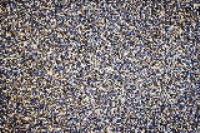 Add My Company
Add My Company
Sign In

Are you seeking an attractive stone finish for your driveway, but still want to avoid the inconvenience of loose gravel? Resin stone surfaces are the solution. These surfacing options combine natural aggregates with resin, which is then laid over the top of an existing high-strength surface. This technique allows you to achieve the appealing look of a gravel driveway whilst preventing the scattering that results from loose stones. If this sounds like the right fit for you, there a couple of options to choose from, and in this article we will be focusing on the key features of both resin bound stone and resin bonded stone to help you choose between them.
What is Resin Bound Stone? – Stoneblend
How is it laid?
Resin Bound Stone livens up your driveway by blending natural aggregates with a resin mixture until every stone is coated in the resin. This results in a smooth finish for your driveway, coating over any rough edges of the aggregates. Once the stone mixture is mixed thoroughly, it is laid over an existing surface and smoothed over with a trowel. The depths vary depending on your individual requirements, but generally resin bound surfaces can achieve depths of 12 – 26mm, which is much thicker than its resin bonded counterpart.
Aesthetics
Resin bound surfaces offer a rustic, homey aesthetic that gives a warm welcome to anyone visiting your property. Surfacing experts, such as Resin Mixed Stone, have the ability to combine different colours and sizes of stone aggregate, providing a bespoke finish to suit any exterior. The stones are held fast, meaning they will not scatter underfoot or under vehicles.
Permeability
The porous nature of resin bound stone allows water to filtrate through it, promoting easy absorption and runoff. These qualities help to prevent flooding and allow water to reach plant roots easily and without hindrance. This feature is especially beneficial in winter, cushioning the damage of freeze and thaw cycles.
Strength
Because the resin mixture is laid on top of an existing surface, such as concrete or tarmac, this grants the driveway a high level of functionality that cannot be achieved with loose gravel. Therefore, the durable nature of resin bound stone makes it ideal for driveways and walkways that experience high traffic.
What is Resin Bonded Stone? – Stonetop
How is it laid?
Unlike resin bound, where the aggregates and the resin are mixed together, resin bonded surfacing is layered as follows; an existing surface is coated with resin, and then the natural stone aggregates are laid on top. Once the stone has set into the resin, any loose particles are swept away to leave a smooth finish. The depth of resin bonded surfaces is between 2-5 mm, but can still offer great durability.
Aesthetics
Say goodbye to the dull, blocky appearance of concrete and tarmac and instead embrace the attractive, rustic look of a resin bonded driveway. Companies such as Resin Mixed Stone can offer great versatility in their supply of stone sizes and colours. They are also able to offer tinted resins to ensure that your driveway looks exactly the way you want it to.
Permeability
Due to its design, resin bonded stone is an impermeable sealed surface that allows no water to filter through.
Strength
Because the resin and aggregates are applied directly to a pre-existing surface, the strength and durability of the underlying surface is preserved. This means the driveway can withstand lots of foot traffic and motor traffic with minimal problems, and without the inconvenience of scattering gravel.
For more information on THE DIFFERENCE BETWEEN RESIN BOUND STONE AND RESIN BONDED STONE talk to Resin Mixed Stone
Enquire Now
List your company on FindTheNeedle.

